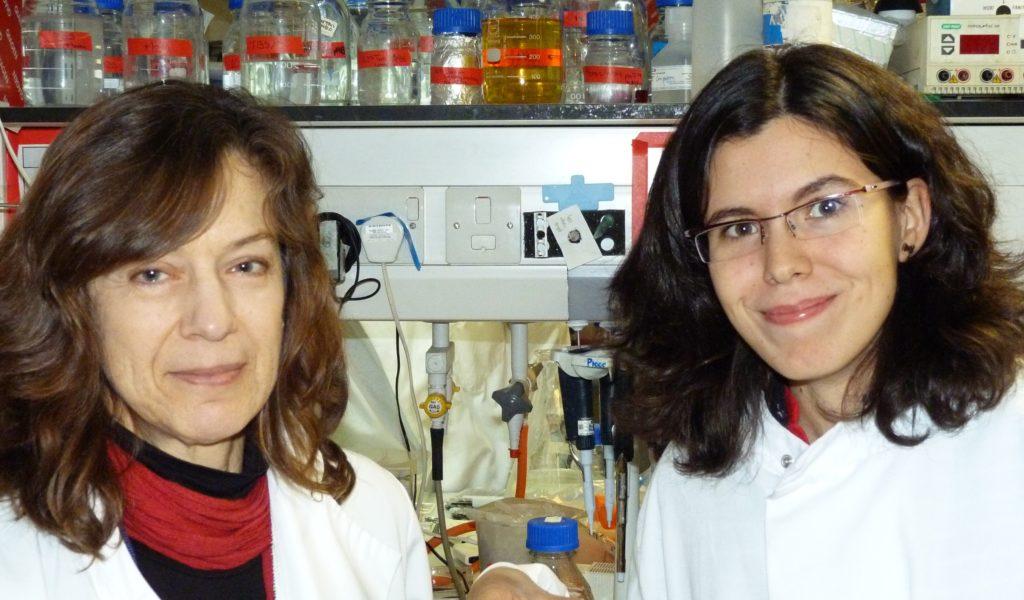Using a modified adenovirus to overcome treatment resistance in prostate cancer
Researchers from BCI’s Centre for Molecular Oncology, led by Dr Gunnel Halldén, have identified a mechanism by which a modified flu-like virus, called AdDD, is able to negate resistance to a drug called mitoxantrone and increase tumour cell killing in prostate cancer models. This mechanism is dependent on B-cell lymphoma 2 (Bcl-2)- a protein involved in the regulation of cell death (apoptosis).

Recent statistics have shown that prostate cancer is now the third biggest cancer killer in the UK, claiming the life of one man every 45 minutes. Here at the BCI, prostate cancer is a key focus of research and our researchers endeavour to identify factors that influence prostate cancer progression and therapeutic response.
Mitoxantrone is a drug used to prevent the progression of cancer by inhibiting an enzyme that detangles DNA, which is required for cell division and growth. Although mitoxantrone promotes prostate cancer cell death, it also induces a process called autophagy. Autophagy- or ‘self-eating’- is a mechanism used by cells to recycle unused cellular components. However, in prostate cancer cells this process also results in degradation of mitoxantrone, removing this drug from the cancer cells and ultimately resulting in this treatment becoming ineffective.
The loss of the effectiveness of a drug against cancer, known as drug resistance, is one of the major factors impeding successful cancer treatment. Resistance to chemotherapy frequently appears in late-stage prostate cancer.
The first author Dr Carmen Aguirre-Hernandez said:
I pursued this project for my PhD thesis because of the need to develop improved therapeutics for patients with treatment-resistant and metastatic prostate cancer; by identifying a mechanism to reverse drug resistance I think we are a step closer now.
Combining drugs with oncolytic viruses
Previous research has shown that combining chemodrugs, such as mitoxantrone, with the AdDD oncolytic viral mutant not only selectively targeted cancer cells, with no toxicity to normal cells, but also decreased treatment resistance and helped improve the efficacy of the drug. However, the mechanisms used by the virus were unknown.
By using prostate cancer cell models, Dr Halldén and her team have identified that administration of AdDD in combination with mitoxantrone inhibits drug-induced autophagy and increases cancer cell death. The findings, published in Oncogenesis in February this year, revealed that AdDDprevented the cellular protein Bcl-2 from initiating autophagy and inactivating the drug.
High levels of Bcl-2 are found in the majority of cancer types, including prostate cancer, providing the means to treat these tumours with AdDD in combination with drugs that induce cancer cell apoptosis. Overcoming resistance to chemotherapy is vital to improve the efficacy of cancer treatment and this modified adenovirus may be an effective adjuvant therapy to help achieve this.
Future directions
This work, supported by grants from Prostate Cancer UK and Cancer Research UK, supports previous studies showing that the combination of chemotherapies and oncolytic viruses is an effective strategy to maximize the impact of the treatment.
Dr Halldén said:
Our oncolytic virus has two specific modifications that are essential for reversal of drug resistance. We are currently further modifying AdDD to target the identified pathway and to enable systemic delivery of virus to treat skeletal metastasis of prostate cancer that causes severe morbidity in patients.
Category: General News, Publications

No comments yet